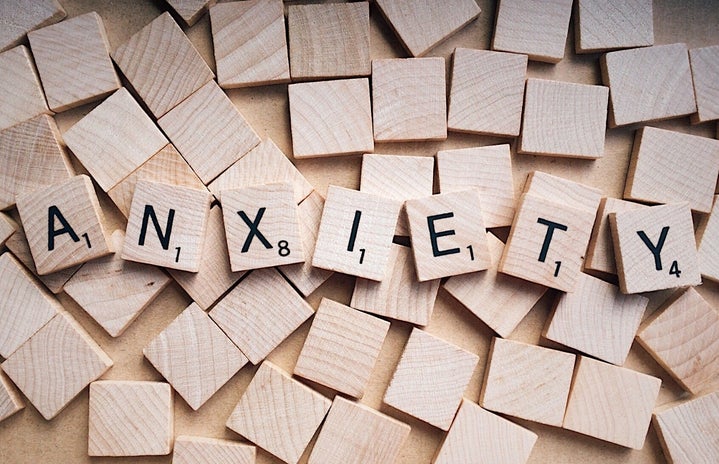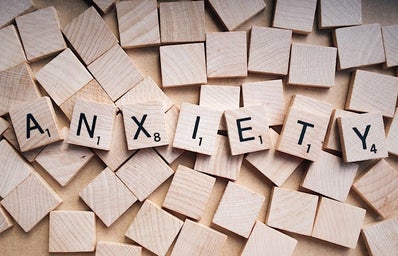Over the course of time, the topic of anxiety and its effect on mental health has been in constant evolution. What started out in the 1600s as a condition called “melancholia,” has transcended to the most common mental disorder in current times.
According to the National Institute of Mental Health, anxiety symptoms can include: “Pounding or racing heart; Sweating; Trembling or tingling; Chest pain; Feelings of impending doom; Feelings of being out of control.” (Sidenote: if you have experienced any of these symptoms, be sure to contact your health care provider and get the help you need.)
Retrieved from Pinterest
According to a large-population survey conducted by the National Library of Medicine “up to 33.7% of the population are affected by an anxiety disorder during their lifetime.” Let’s put it in a simpler lens. If the survey was conducted in a group of 1,000 people, that would mean that 337 of them indicated that they had anxiety. That’s A LOT of people. People who decided to speak out for themselves for a greater cause.
But, what about those who prefer to suffer in silence? Sadly, for a lot of people, it’s not as easy to speak up—maybe due to personal limitations/insecurities or because they prefer to not know what society will think of them once they decide to share their experience.
Social media has become a tremendous tool where people can share their experiences with anxiety to help those who really need it. However, as I conversed with fellow colleagues, it appears that it has also turned into a double-edged sword. While most find comfort in sharing their stories, others find it as a gateway to misinform, deceive, and bully (which could trigger anxiety, PTSD, amongst other mental health conditions). We must learn to disseminate credible sources and validating voices. Furthermore, it is imperative we lean on those who can provide help or lead you to it.
Retrieved from Pinterest
Regarding the topic of this op-ed, it was important to do a deep dive into the history of anxiety—which I shared briefly above. However, since it has become a widespread analytical topic, I decided to conduct a survey and have an academic conversation with fellow colleagues. The best way to find answers is to talk with people who have any experience with the issue in question: proliferation or advocacy?
The first question posed in this survey asked if the person answering has or knows anyone that has anxiety. Sadly, all the participants answered yes. Every participant agreed that proliferation (due to any number of reasons) and advocacy contribute equally to this anxiety epidemic, which puts into perspective the increase of anxiety cases and the percentages shared by the National Library of Medicine.
Specifically, the participants indicated that the proliferation of cases were commonly triggered by personal events, the COVID-19 pandemic, changing times, amongst other reasons. Humans are fragile beings, constantly being bombarded by negative media, traumatic and life-changing experiences, and/or change. It is understandable that it’s difficult to deal with everything at the same time. Even Harvard published an article discussing ways to deal with the overwhelming events of our day-to-day life! It’s a social problem. However, we must not give up because that’s the sign weneed to start leaning on those who can help us. Trying our best is tiring, so let’s get that boost we need.
On the other hand, when being asked about the boom in advocacy, most of the participants agreed that there has been a significant decay in the notion that mental health is a taboo topic. Thankfully, stories are being shared and are available to the public that needs them the most.
My thoughts on this theme go along with what most of the participants and colleagues shared. Certainly, both factors, proliferation and advocacy, affect the narrative of anxiety and mental health in our society. It’s up to us to determine what we choose to do with this information to achieve real change—both for those who suffer with it everyday and the ones that don’t and must become a helping and encouraging voice.
Retrieved from Pinterest


